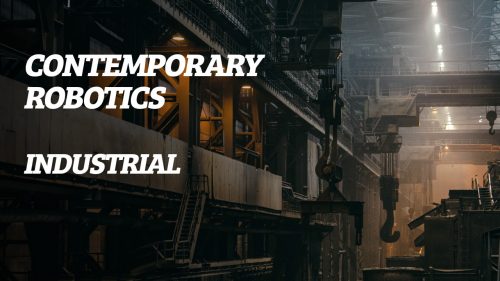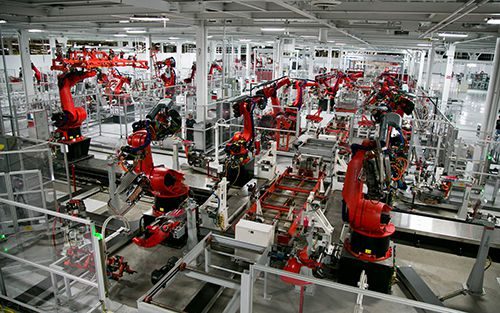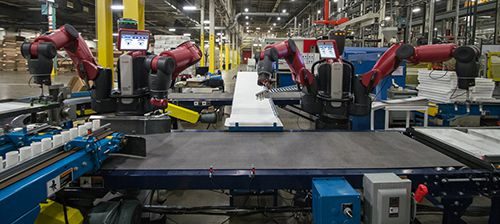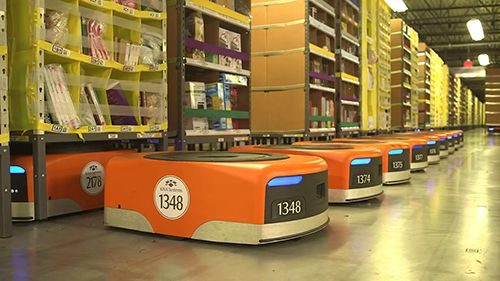Contemporary Robotics - Industrial

We're moving towards a world full of robots, that's a fact. In this series, we're taking a break for a second to assess where Contemporary Robotics are at today and what the future looks like. For this fourth chapter, we're studying robotics in the industrial world.
Industrial Robots have already transformed the secondary sector
As explained in our previous chapter, robots have arrived in most of the factories around the world. We've come a long way since the first Unimate in the 1960's. They have not only made the work safer for the workers, but they do it better too. By being more productive, they helped drive the production costs down and proved to be extremely cost-effective. They also helped make possible what seemed impossible or too complicated. Thus, they impacted our world and our lives far beyond just our factories.Industrial Robots will keep being improved and improve our lives.
Not only they make jobs safer and drive manufacturing costs down, but they have a strong positive impact on the economy. Indeed, it has been witnessed that heavy investments in automation are correlated with an increase in the GDP, which itself is correlated with an improvement in the quality of life. And with these investments and the research and development, "traditional" robots are going to get better and smaller, and consequently agiler. Soon, we'll see robots doing tasks which were reserved for humans, and we'll see them in companies of all sizes. We've seen the first iterations of Baxter and everything indicates that more and more similar robots will help disrupt work as we know it.Industrial Robots are leading us towards an automated world
We can't dissociate the improvements in robotics with those in AI. As robots get smarter thanks to artificial intelligence, they'll get more autonomous. We're already seeing some warehouses having robots moving the stocks around. With autonomous cars and trucks around the corner, we can wonder "How long before all the warehousing and shipping is done by robots only?". And since we're bound to see robots in all companies, we're left wondering: which jobs are going to be automated and be done by autonomous robots in the future?Thanks for helping to keep our community civil!
Notify staff privately
You flagged this as spam. Undo flag.Flag Post
It's Spam
This post is an advertisement, or vandalism. It is not useful or relevant to the current topic.
This post is an advertisement, or vandalism. It is not useful or relevant to the current topic.
You flagged this as spam. Undo flag.Flag Post






